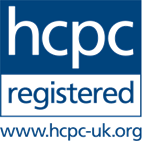Families

Information for Parents
When is an EP assessment helpful?
An independent Educational Psychology assessment can be helpful when:
Parents and teachers are concerned about a child’s progress and development and would like support in identifying ways to support the child.
Planning transition to a new school and supporting staff in planning for your child’s needs.
A family wishes to obtain a clearer understanding of their child’s needs and whether these needs can be supported through SEN support at school or whether a request to the Local Authority for an Education, Health and Care Needs Assessment (EHCNA) may be appropriate.
What does this involve?
I work in partnership with families, schools and any other involved professionals to achieve positive outcomes. I will ask you to complete some information about your child so that I can understand your concerns and check that I am the right person to help you. If not, I may be able to signpost you to another professional who will be able to help. Assessments of children under 18 are only carried out with the consent of parents or those with parental responsibility. Assessments take place at the home or school, provided this has been previously agreed with members of school staff. Following agreement for assessment to take place, I would then ask you to speak to your child’s school and ask them to complete an information form. I apply a strengths-based approach, which aims to make the assessment a positive experience for all involved. This may involve:
- Attending a meeting with you, members of school staff and any other professionals involved to discuss your child’s needs and plan ways forward.
- I may observe your child in the classroom or playground.
- I may meet your child and ask them about home and school and play some games and puzzles or complete some reading, writing, spelling or math tasks to help me to understand how they learn best.
Each assessment is tailored to the needs of the individual child. For younger children, a play-based approach can be used to understand how a child learns, communicates and feels. For older children, questionnaires and standardised assessment tools may be used, alongside observation and informal conversation.
Assessments are followed up with a written report detailing the outcomes of the assessment and support strategies so that parents and schools know the appropriate next steps in supporting the child or young person.
